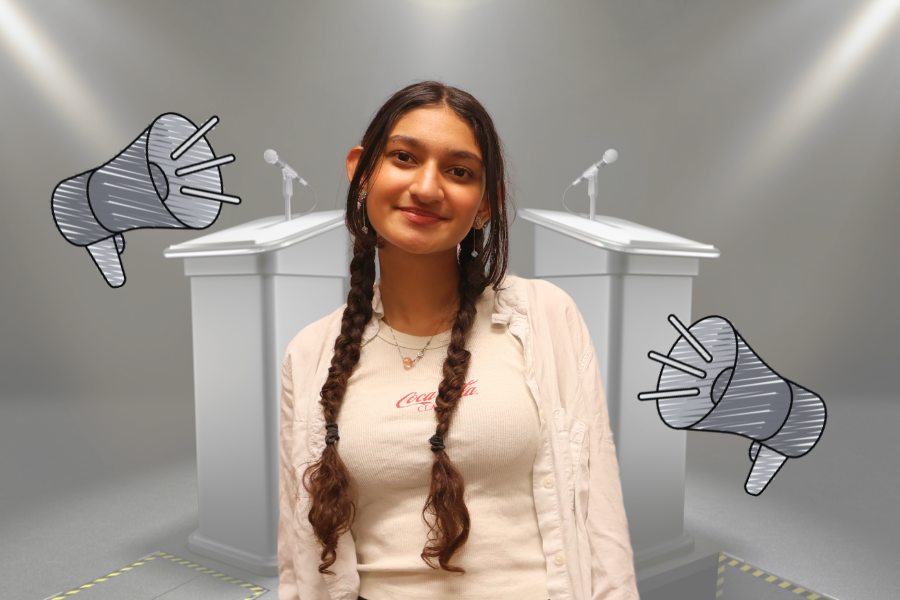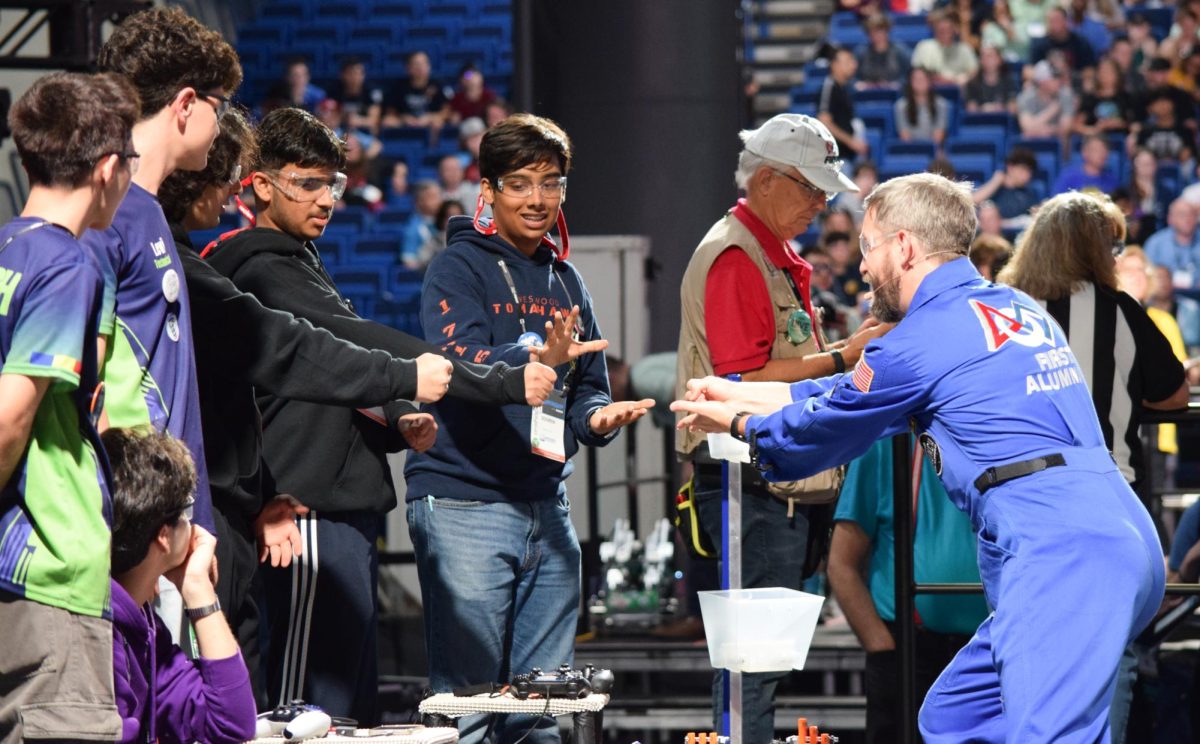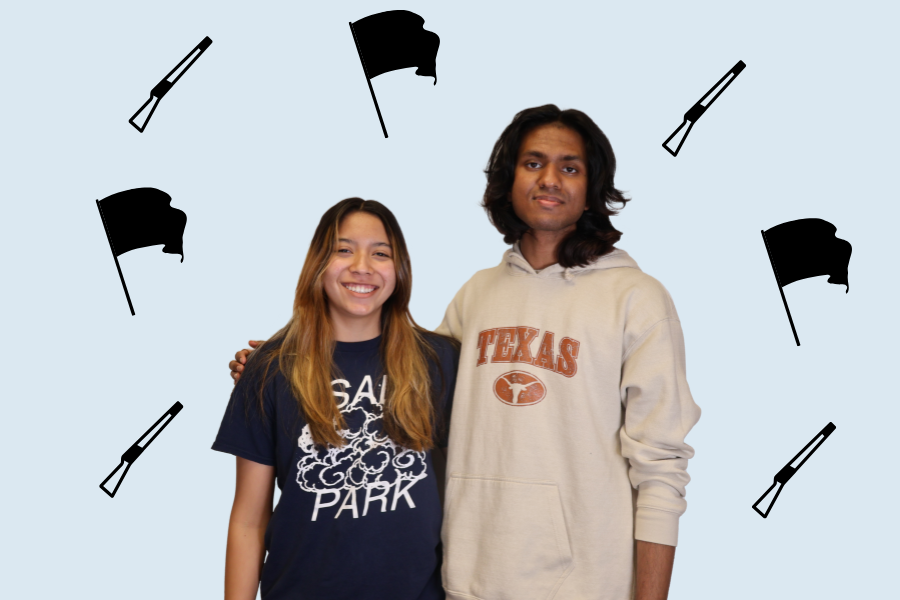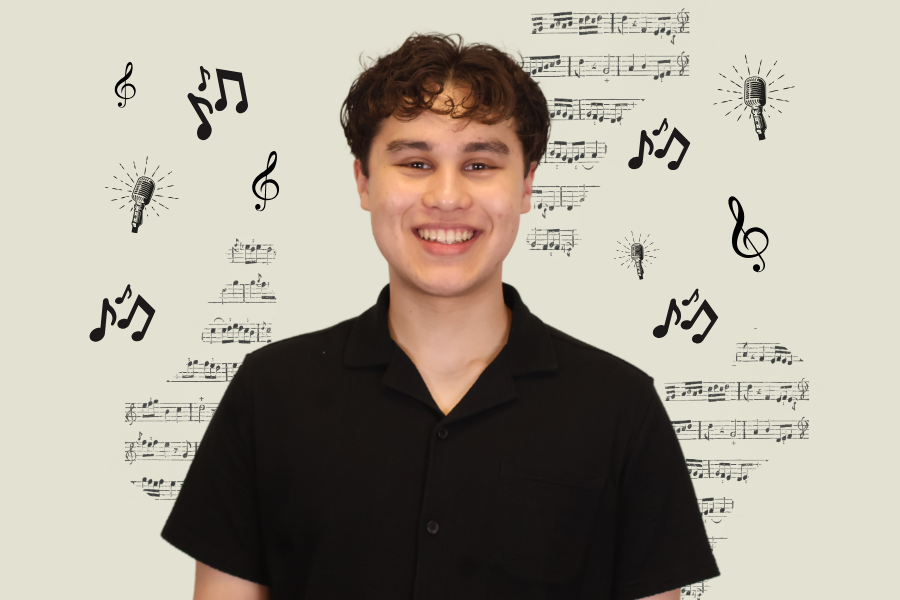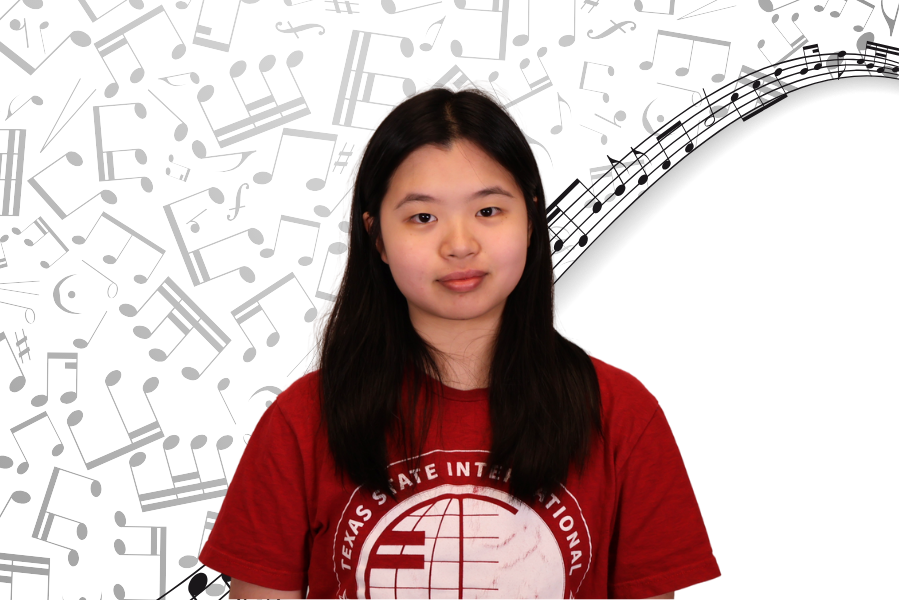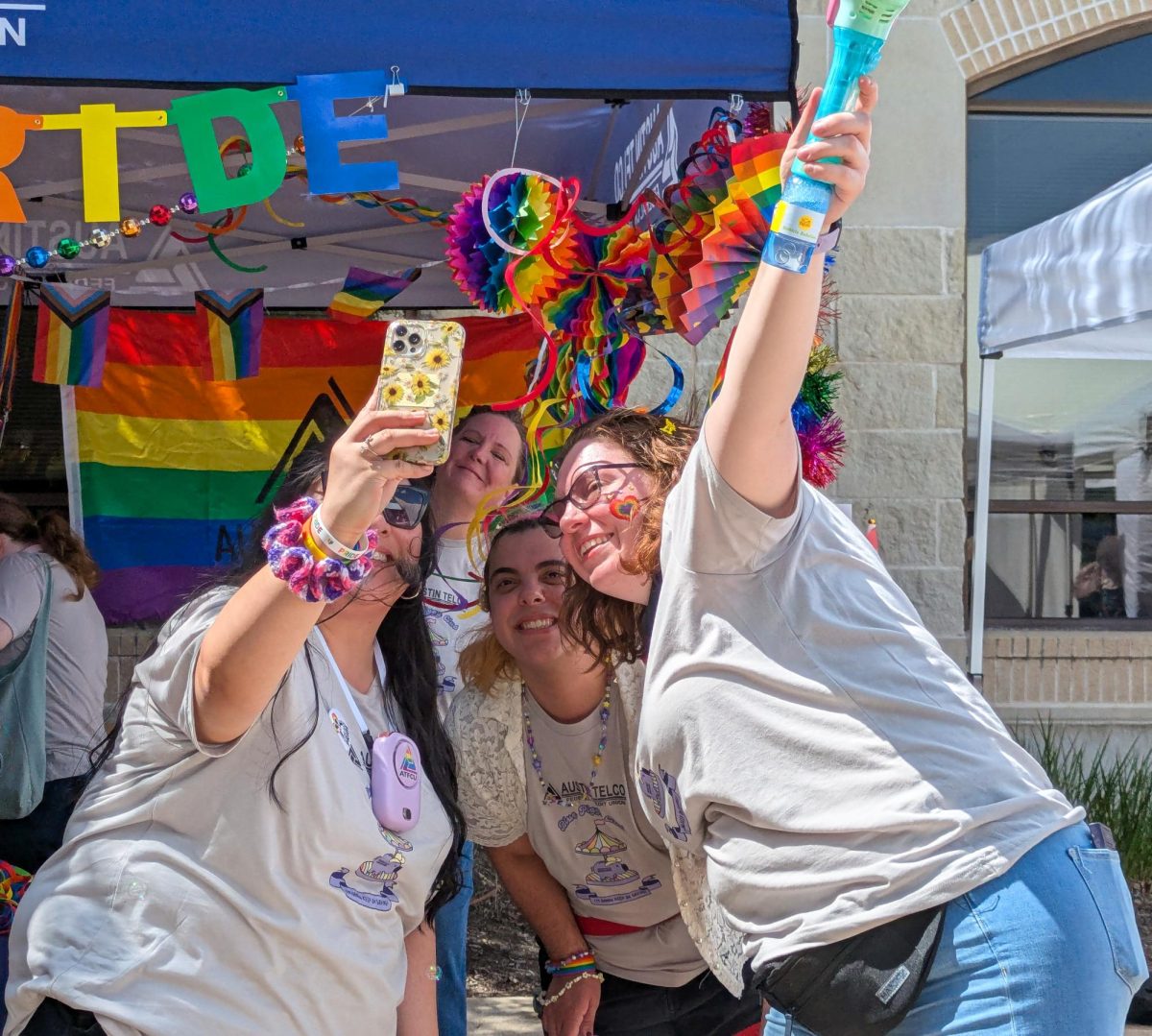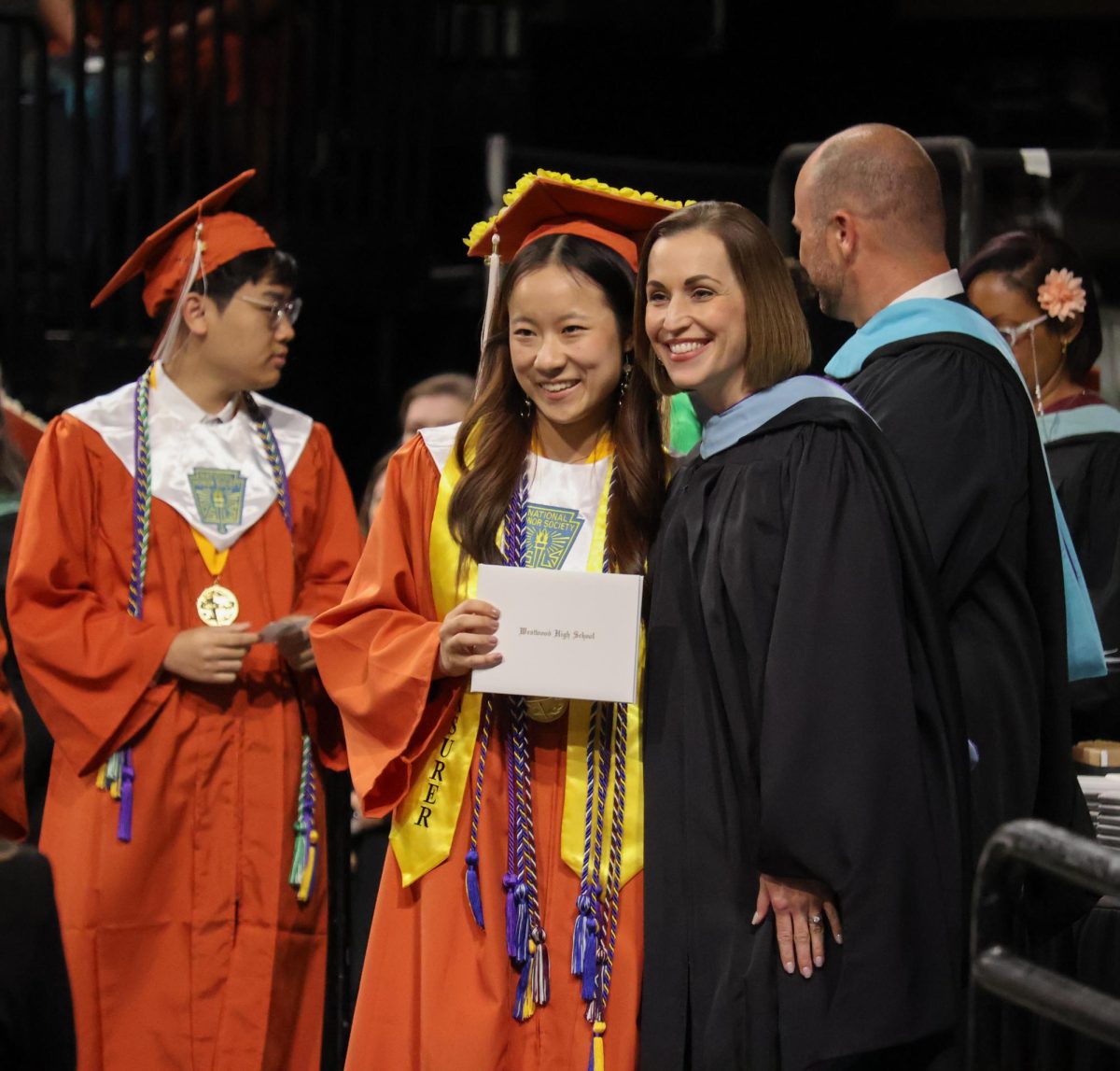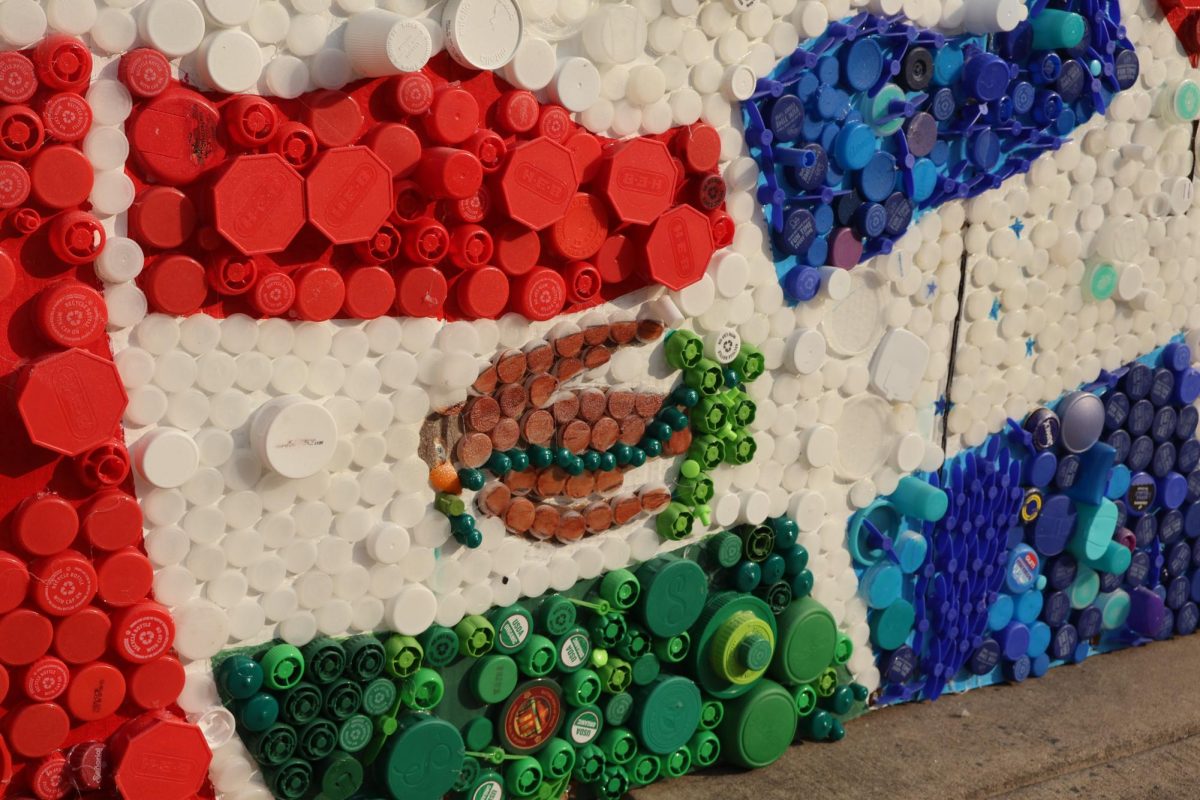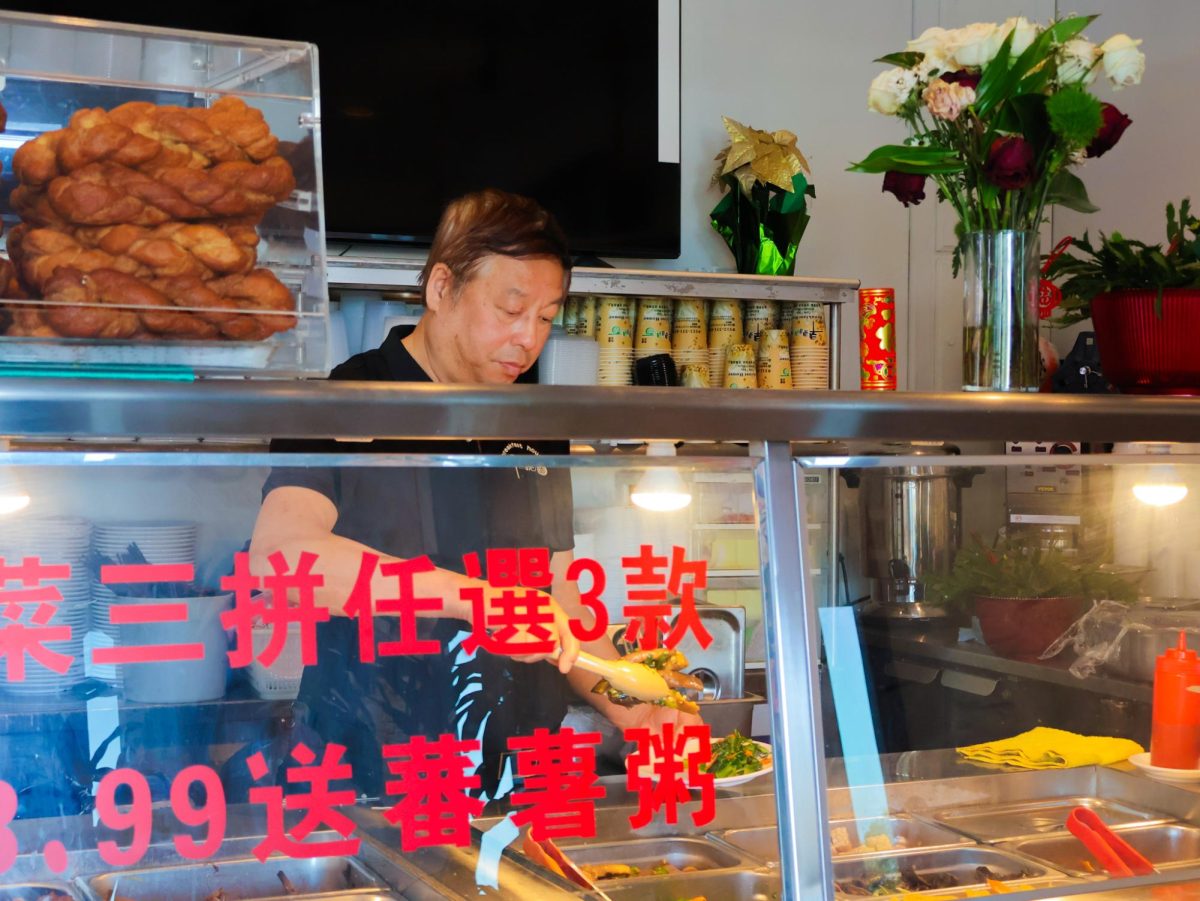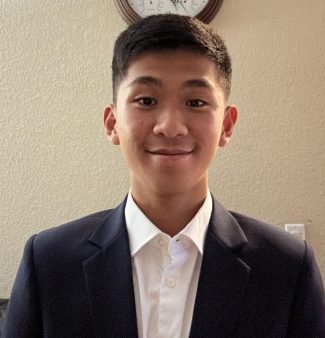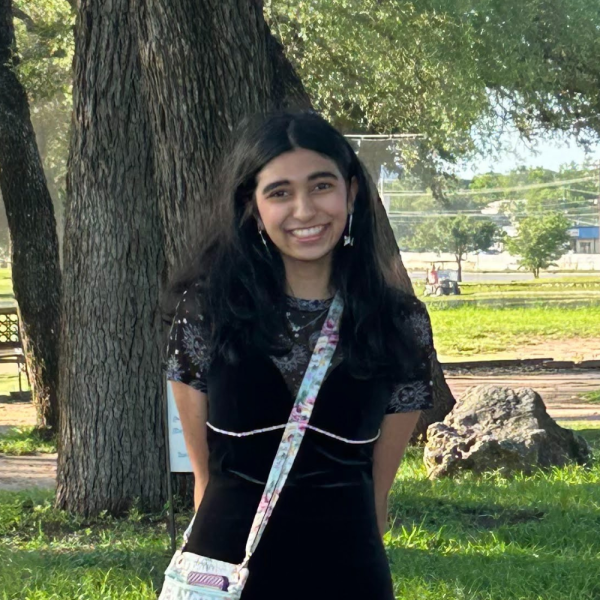Over the course of 25 years, half a dozen different administrations, and the pandemic, Westwood Speech and Debate has persevered through it all. At the heart of the program’s continued success and tradition are the Novice Coordinators who teach the younger generations of speakers and debaters of today to be the varsity members of tomorrow. Of these leaders, one stands out: Policy Novice Coordinator Varsha Sivasubramanian ‘26, who has worked for the past three years to make Speech and Debate a more inclusive space. She plans on continuing this mission as she enters the role of President and runs a program ranked among the top twenty in the world.
“I [originally] ended up deciding to do debate because I had an extra elective,” Sivasubramanian said. “I remember going to the first Novice Night meeting and wasn’t sure which event I wanted to do. I texted a friend who said he was thinking of doing Policy. At the time, Policy seemed cool, and the talk about college applications and traveling was interesting, so I went for it.”
During her sophomore year, Sivasubramanian experienced four semesters of late-night prep work and tournaments across the country. Persevering through the lows and taking pride in the highs, Sivasubramanian decided to stick with the activity and give back to the community by applying for the Novice Coordinator position.
“[During] my freshman and sophomore years, I felt like I wasn’t getting the same level of help as others, and it made me want to be someone who could help people weekly,” Sivasubramanian said. “Our team didn’t have an experienced coach my freshman year, making it hard for the few upperclassmen to attend to everyone. I wanted to ensure I could be someone who could help and make people love the activity as much as I do.”
In spite of her officer position, Sivasubramanian found herself feeling isolated at times as the only female varsity member of the Policy team. Not having female varsity members to learn from or confide in, especially when competitions got hard and results weren’t always what she hoped for, was a roadblock Sivasubramanian worked throughout the year to overcome.
“I think the biggest challenge for me has been trying to figure out where I belong in debate,” Sivasubramanian said. “It’s a very competitive activity with a lot of different dynamics within a team and the broader culture across the country. It’s been difficult to figure out how much to value competitive success versus the friends I’ve made. However, I’m starting to find my people in the activity and feel more at ease with where I am in my career.”
Competing in Policy Debate is one of, if not the most, intensive events in Speech and Debate. To match the vigor of her event, Sivasubramanian spent her summers at the University of Michigan’s debate camp, one of the most rigorous camps in the country. Despite the pressure and high workload, she was able to find a community that supported her alongside her debate journey.
“If I had to pick one memory [I cherish the most], it would be my time at Michigan,” Sivasubramanian said. “Spending seven weeks with a bunch of people who become a big part of your life, whom you talk to daily for months, creates strong bonds. One particular memory that stands out is when all the girls in my lab decided to go out for dinner. Even though we were all from different parts of the country, we shared such similar experiences and the same love for the activity.”
Heading into junior year, Sivasubramanian guided over a dozen novices each week, teaching them new arguments and different tactics while helping them prepare for upcoming tournaments at both the local and national scene. Throughout the process, however, she realized that not everyone would prefer the same style of debate she did.
“I think the biggest lesson I’ve learned is that you can’t teach everyone the same way,” Sivasubramanian said. “Because of my experience in my freshman year, I initially gravitated toward a more open, approachable teaching method, which at times made it difficult to be fully productive. The novices I was helping this year are very ambitious, bold, and driven, and sometimes their love for the activity can ironically get in the way of their learning. The biggest lesson is that I need to figure out ways to find a balance in my teaching, especially since you have to start from absolutely zero with something as complicated as Policy debate.”
Sivasubramanian breaks the traditional mold of the average Policy debater, often opting against constantly donning a hoodie, and instead acts as a teacher who takes the time to break down debate jargon to outsiders. As one of the first female presidents of Speech and Debate, Sivasubramanian enjoys activities pre- and post-tournament that a male-dominated event might not consider, and offers insight that only a female lens could provide; with her unique background and struggles, Sivasubramanian has a bright outlook for the road ahead.
“I’m very happy to be a figure that I wanted to see when I started out,” Sivasubramanian said. “[When I was a freshman,] there were no female varsity members in Policy. It’s been amazing to see the recruitment of so many girls and see so many of them in leadership positions. I’m excited for us to continue developing recruitment and ensuring the team can be as productive as possible.”
To achieve this goal, Sivasubramanian has to balance tradition and her own vision for the team. She recognizes that the root cause for much of the team’s competitive success has been the large amounts of work done during class and plans to further encourage this method. Meanwhile, she recognizes the same competitive drive has often resulted in a culture closed off to outsiders and novices, something she hopes to change.
“One change I’m going to make next year is to ensure the officers are a lot more cohesive,” Sivasubramanian said. “I feel like everyone was kind of doing their own thing this year, so I hope we’ll have more meetings and more collaboration across all the events to make it feel like one full team.”
Sivasubramanian has faced instances of scrutiny throughout her past three years in Speech and Debate, often feeling like each mistake or non-perfect tournament performance opened her up to criticism. Amidst the pressure, however, Sivasubramanian found timeless lessons.
“I think one thing about the activity is that it’s really hard not to let the dynamics and what’s often called ‘debate drama’ and politics affect you,” Sivasubramanian said. “One piece of advice I have is that it’s okay not to feel like you’re completely where you’re meant to be, and it’s okay for it to take time to find your people within the activity. Not everyone will be your best friend, but you will find the people who make you want to stay.”
As she nears the end of her debate journey, Sivasubramanian hopes she can leave a legacy of inclusivity, one where she makes plans to create team-bonding activities, offer new ways to teach novices, and host team bonding activities to celebrate each event’s success, creating a future where every voice is heard.
“I’m hoping that by the end of my senior year, I can leave knowing that I had an impact on the inclusivity of the team and made people feel like they want to be here,” Sivasubramanian said. “I want to be someone who people feel had an influence on them falling in love with the activity.”

